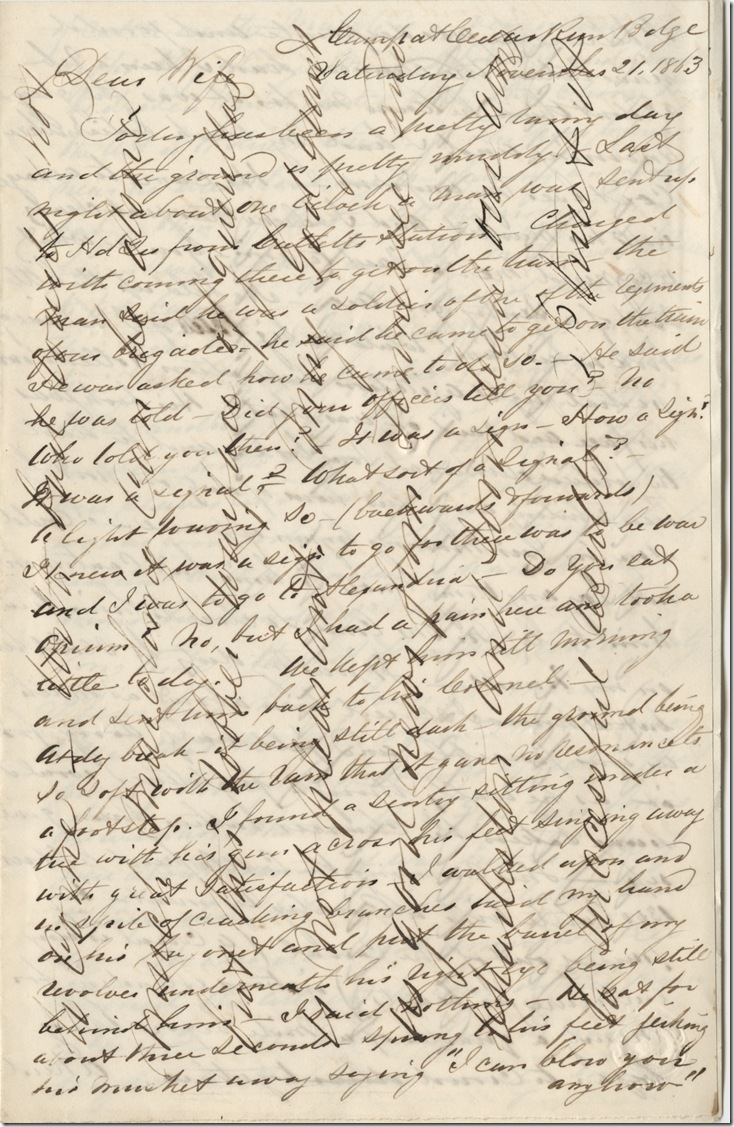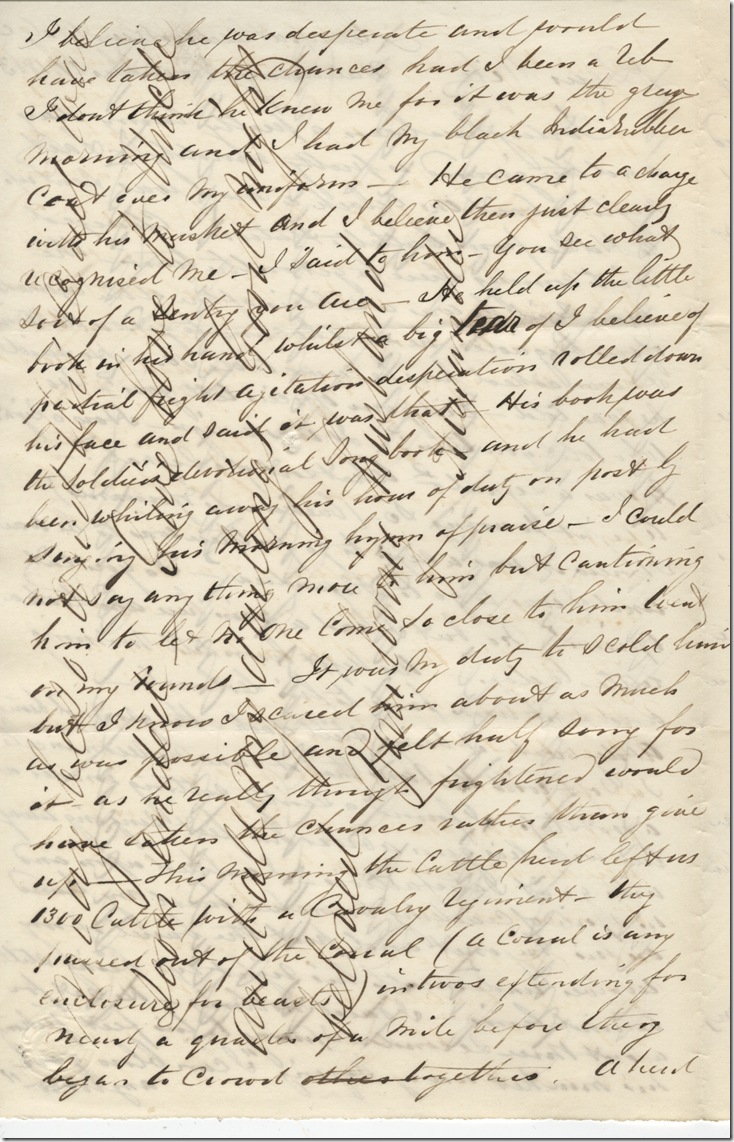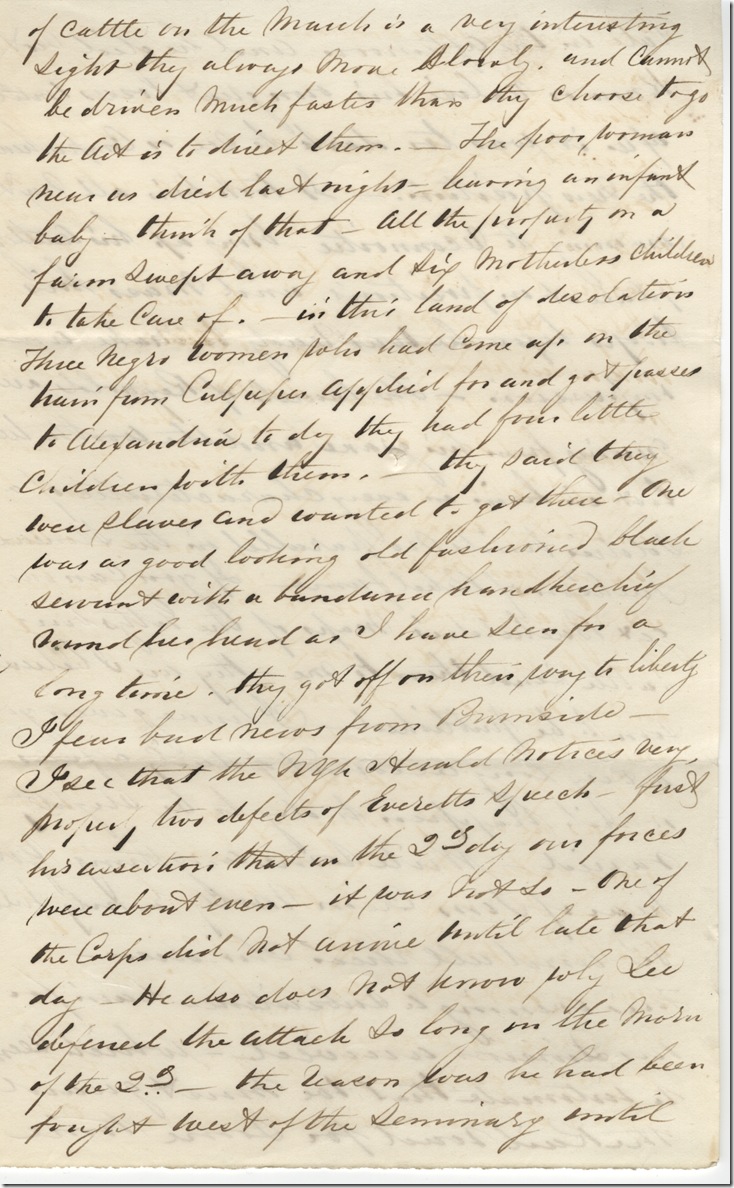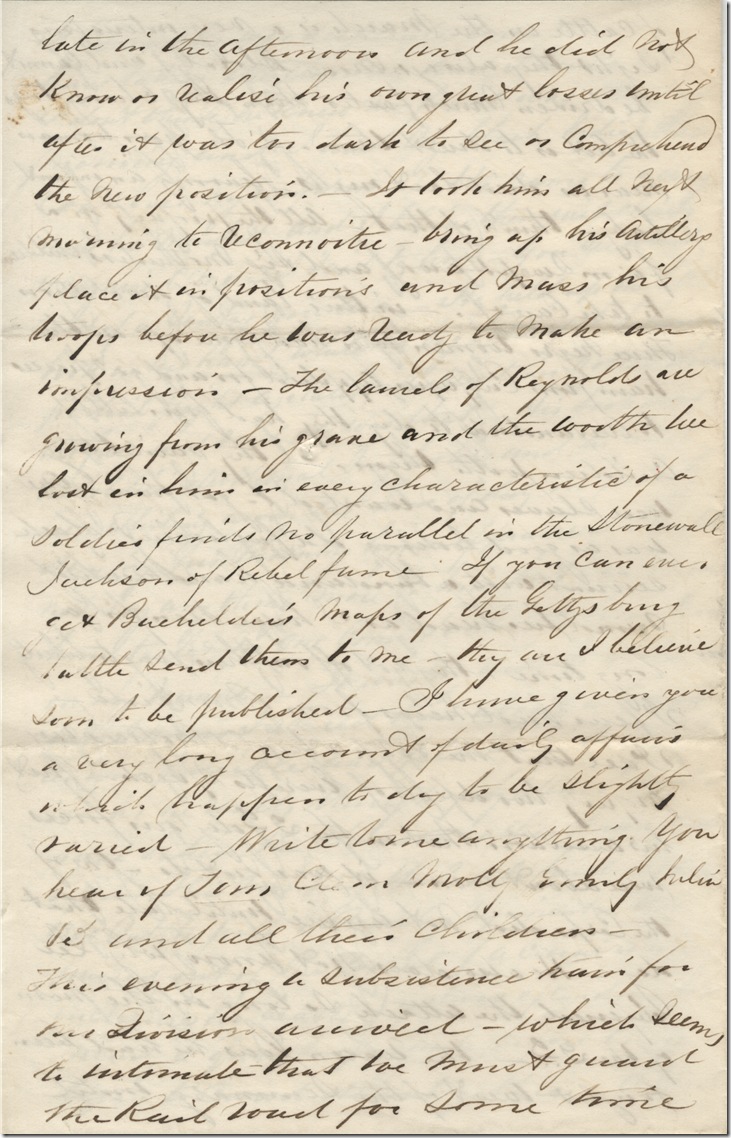Alexander Biddle was a member of the prominent Philadelphia Biddle family and was married to Julia Williams Rush, the granddaughter of Dr. Benjamin Rush. Biddle served with the 121st Pennsylvania Volunteer Infantry, beginning in September 1862. Starting out as a major, he would participate in Fredericksburg and Gettysburg, among other engagements, and would leave the service as a lieutenant colonel. (He was commissioned, but never mustered, as colonel)
Transcript:
Camp at Cedar Run Bridge
Dear Wife,
Today has been a pretty rainy day and the ground is pretty muddy. Last night about one o’clock a man was sent up to Hd Qts from Catlett’s station. Charged with coming there to get on the train, the man said he was a soldier of the regiments of our brigades, he said he came to get on the train. He was asked how he came to do so. He said he was told. Did your officers tell you? No. Who told you then? It was a sign. How a sign? It was a signal. What sort of a signal? A light [waving?] so (backwards & forwards) It was a sign to go for there was to be war and I was to go to Alexandria. Do you eat opium? No, but I had a pain here and took a little today. We kept him till morning and sent him back to his Colonel. At day break, it being still dark, the ground being so soft with the rain that it gave no resonance to a footstep. I found a sentry sitting under a tree with his gun across his feet singing away with great satisfaction. I walked upon and in spite of cracking branches had my hand on his bayonet and put the barrel of my revolver underneath his right eye being still behind him. I said nothing. He sat for about three seconds sprung to his feet jerking his musket away saying “I can blow you anyhow.” I believe he was desperate and would have taken the chance had I been a Reb. I don’t think he knew me for it was the gray morning and I had my black indiarubber coat over my uniform. He came to a charge with his musket and I believe then just clearly recognized me. I said to him, you see what sort of a sentry you are. He held up the little book in his hand whilst a big tear of I believe of partial fright, agitation, & desperation rolled down his face and said it was that his book was the soldier’s devotional song book and he had been whiling away his hour of duty on post by singing his morning hymn of praise. I could not say anything more to him but cautioning him to let no one come so close to him. It was my duty to scold him but I know I scared him about as much as was possible and felt half sorry for it as he really though frightened would have taken the chances rather than give up. This morning the cattle heard left us 1300 cattle with a Cavalry regiment, they passed out of the Coral (a coral is any enclosure for beasts) in twos extending for nearly a quarter of a mile before they began to crowd together. A herd of cattle on the march is a very interesting sight, they always move slowly and cannot be driven much faster than they choose to go, the Act is to direct them. The poor woman near us died last night bearing an infant baby, think of that, all the profit on a farm swept away and six motherless children to take care of. In this land of desolation three Negro women who had come up on the train from Culpeper applied for and got passes to Alexandria today they had four little children with them. They said they were slaves and wanted to get there, one was as good looking old fashioned black servant with a bandana handkerchief around her hand as I have seen for a long time, they got off on their way to liberty. I have bad news from Burnside. I see that the NYk Herald notices very proper two defects of Everett’s speech. First his assertion that in the 2nd day our forces were about even, it was not so. One of the Corps did not arrive until late that day. He also does not know why Hd Qts defended the attack so long on the morn of the 2nd. The reason was he had been fought west of the seminary until late in the afternoon and he did not know or realize his own great losses until after it was too dark to see or comprehend the new position. It took him all next morning to reconnoiter, bring up his artillery, place it in positions and mass his troops before he was ready to make an impression. The laurels of Reynolds are growing from his grave and the worth we lost in him in every characteristic of a soldier finds no parallel in the Stonewall Jackson of Rebel fame. If you can ever get Bachelder’s maps of the Gettysburg battle send them to me, they are I believe soon to be published. I have given you a very long account of daily affairs which happen today to be slightly varied. Write home anything you hear of Tom, Clem, Molly, Emily and all their children. This evening a subsistence train for our division arrived which seems to intimate that we must guard the Railroad for some time to come. with bad roads not much marching can be done but this robber war was of guerillas is not pleasant. May God grant us good news from Tennessee and Charleston and soon [give?] our arms to successful results. I trust it may be so and this cruel war soon ended. Give love to Uncle and all my darlings, good night beloved.
Your loving husband, Alexander
Citation: Alexander Biddle (1819-1899), autograph letter signed to Julia Williams Rush Biddle,21 November 1863. Rush IV:30:37




.…
ñïàñèáî!…
.…
ñïñ!!…